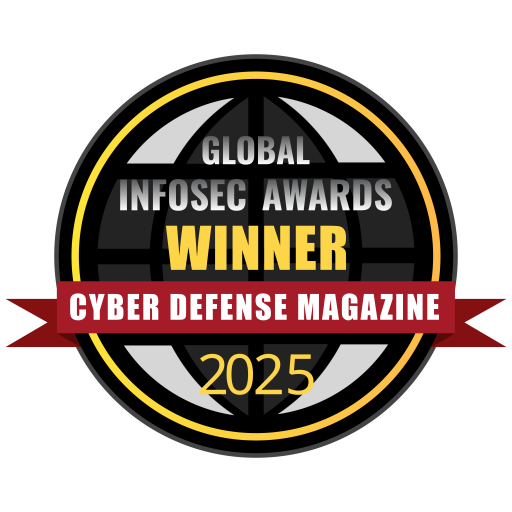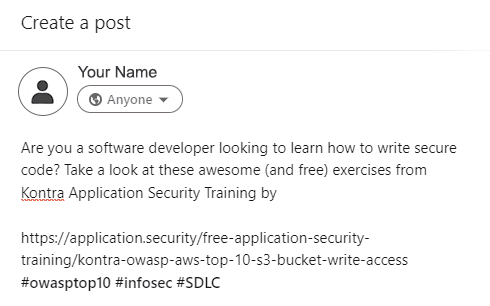Introduction
Cybersecurity is exciting and offers tons of opportunity. To succeed as a cybersecurity professional, you need to prove you have what it takes to keep the digital world safe. One of the typical ways to do that is with professional certifications—and one of the most important is the
Diving into cybersecurity with the CISSP is like exploring a new city with a detailed map in hand. At the heart of the CISSP certification lies the (ISC)2 CISSP Common Body of Knowledge (CBK), a comprehensive framework that spans eight domains of cybersecurity expertise. From risk management to software development security, the CBK provides a detailed overview of the knowledge required to navigate the challenges of cybersecurity.
As we hit the road together to explore the CISSP certification, remember this: in the ever-changing world of cybersecurity, this certification isn’t just a map. It’s your personalized guide that not only shows you the lay of the land but helps you claim your spot in the cybersphere.

The CISSP Certification
The Certified Information Systems Security Professional (CISSP) certification is a globally recognized credential in the field of information security, administered by the International Information System Security Certification Consortium, or (ISC)2.
The CISSP certification validates the baseline skills in designing, implementing, and managing a best-in-class cybersecurity program. CISSP is important because it demonstrates to potential employers that you have a deep understanding of cybersecurity practices and principles that align with industry standards, and are equipped to protect them from cyber threats.
Why Pursue the CISSP Certification?
Holding a globally recognized CISSP certification dramatically boosts your job prospects, making you a sought-after candidate across cybersecurity and related fields. Not only does it fast-track your career progression, but it also enhances your credibility.
The CISSP certification is a nod to your expertise and commitment to the field. It elevates your professional stature, opening doors to opportunities you might not have imagined possible.

Eligibility and Requirements: Do You Qualify?
Here are the CISSP certification experience requirements:
Five Years of Relevant Experience:
You must have a minimum of five years of full-time experience in two or more of the eight domains of the CISSP Exam Outline.
Pass the CISSP Exam:
The exam tests your mastery over the CBK, challenging your knowledge and skills in cybersecurity.
Adhere to the (ISC)2 Code of Ethics:
Agreeing to this code ensures you navigate the cybersecurity realm with integrity, professionalism, and confidentiality.
Endorsement:
After passing the exams, you’ll need an existing (ISC)2 certified professional to vouch for your qualifications and experience.
Meeting these requirements marks you as not only capable of safeguarding the digital realm but committed to exploring it with honor and professionalism.

Demystifying the CISSP Exam: What to Expect
The CISSP exam serves as your pathway to cybersecurity expertise, testing your understanding, knowledge, and skills across eight domains. These domains range from security and risk management to software development security, encompassing the full spectrum of information security.
Designed to challenge you, the exam format includes a variety of questions, from multiple-choice to advanced innovative types, pushing you to apply your knowledge in real-world situations.
You’ll have up to three hours to complete the exam, navigating through a maximum of 150 questions. This test evaluates not just what you know, but also how you apply that knowledge to protect and secure digital assets.
Conquering the CISSP: Effective Preparation Strategies
Navigating the path to CISSP certification requires a well-rounded strategy. Here’s your roadmap to effective CISSP exam preparation:
Start with the ThriveDX Cybersecurity Professional Bootcamp:
For those embarking on the CISSP journey, the ThriveDX Cybersecurity Professional Bootcamp stands out as an essential first step. It’s designed to lay a solid foundation in cybersecurity principles and align closely with the CISSP domains—equipping you with the practical skills and theoretical knowledge needed to confidently tackle the CISSP exam.
Leverage Official (ISC)2 Resources:
Immerse yourself in the official (ISC)2 training courses and self-study materials. These resources are tailored to the CISSP exam, ensuring you cover every aspect of the CISSP Common Body of Knowledge (CBK).
Supplement with Third-Party Study Guides and Practice Exams:
Enhance your preparation with third-party study guides and practice exams. Practice exams are particularly useful for familiarizing yourself with the exam format and time constraints.
Engage with Online Communities and Forums:
Join CISSP online communities and forums for invaluable peer support and knowledge sharing. Engaging with others on the same journey can provide moral support, insights, and tips that you might not find in official study materials, catering to your learning style.
Master Time Management and Test-Taking Strategies:
Develop a study schedule that allows you to cover all domains adequately, leaving time for review. Learn effective test-taking strategies, like how to approach different types of questions and manage your time during the exam.
By following this roadmap, you’re not just preparing for an exam—you’re setting the groundwork for a successful career in cybersecurity.

Charting Your Course: Cybersecurity Careers with CISSP
Embarking on the CISSP certification journey opens many career opportunities where your skills can make an impact. The CISSP credential is your passport to roles like security analyst, security architect, consultant, CISO, and more.
Industries far and wide, from finance to healthcare, are on the lookout for professionals who not only understand cybersecurity frameworks but can also effectively implement and manage them.
Beyond the Exam: Maintaining Your CISSP Certification
After you’ve passed the CISSP exam, your journey into cybersecurity doesn’t just pause there—it shifts into a continuous cycle of learning and growth.
This is where Continuing Professional Education (CPE) comes into play, a crucial element for maintaining your CISSP certification. Engaging in CPE activities ensures that your skills stay relevant, sharp, and ahead of the curve.
To stay compliant, you can dive into webinars, write professional articles, attend conferences, or participate in workshops related to cybersecurity. These activities keep your certification valid and enrich your knowledge base, allowing you to tackle new challenges with confidence and expertise.
Remember, standing still is not an option in the fast-evolving realm of cybersecurity.

Conclusion
Embarking on the path to CISSP certification might seem daunting, but every journey begins with a single step.
The ThriveDX Cybersecurity Professional Bootcamp is the step to not just preparing for the CISSP exam but also forging a career that’s both rewarding and impactful. This bootcamp is designed to equip you with the confidence, knowledge, and skills to tackle the CISSP certification head-on. By starting here, you’re not just learning—you’re preparing to join the ranks of the world’s most respected cybersecurity professionals.
So, why wait? Enroll in the ThriveDX Cybersecurity Professional Bootcamp today and set the stage for a future where you can confidently protect the digital world.
FAQ
What is CISSP certification and why is it important in the field of information security?
The Certified Information Systems Security Professional (CISSP) certification is a globally recognized credential in the field of information security administered by the International Information System Security Certification Consortium (ISC)2. It validates an individual’s expertise in designing, implementing, and managing a best-in-class cybersecurity program.
CISSP is important because it signifies a deep understanding of cybersecurity practices and principles, aligning with industry standards and ensuring that professionals are equipped to protect organizations from cyber threats.
How many domains are covered in the CISSP Common Body of Knowledge (CBK) and what do they encompass?
The CISSP Common Body of Knowledge (CBK) covers eight domains:
- Security and Risk Management
- Asset Security
- Security Architecture and Engineering
- Communication and Network Security
- Identity and Access Management (IAM)
- Security Assessment and Testing
- Security Operations
- Software Development Security
Can individuals with diverse backgrounds, not just those in IT, pursue CISSP certification?
Individuals from diverse backgrounds, not just those in IT, can pursue CISSP certification. While a background in IT or cybersecurity can be beneficial, the certification is also suitable for professionals in other roles, such as audit, compliance, and risk management, provided they meet the experience requirements.
What is the structure of the CISSP exam and how long does it typically take to complete?
The CISSP exam uses a Computer Adaptive Testing (CAT) format for English exams, with up to 150 questions and a maximum of three hours to complete.
The exam format for languages other than English is linear, consisting of 250 questions with a six-hour time limit. The exam covers multiple-choice questions and advanced innovative questions.
Are there specific training requirements for CISSP, and where can candidates find reliable study materials?
There are no specific training requirements for the CISSP exam, but (ISC)2 offers official training courses, self-study materials, and practice exams. Candidates can also find reliable study materials through accredited training providers, third-party books, and online resources.
How does CISSP certification contribute to the enhancement of cybersecurity skills?
CISSP certification enhances cybersecurity skills by covering a broad range of topics within the field. It promotes a deeper understanding of security principles and provides a framework for applying this knowledge in various scenarios. CISSP certification also encourages ongoing learning through CPE requirements.
Can CISSP certification be earned by professionals working in specific industries or sectors?
CISSP certification can be earned by professionals working in any industry or sector. It’s designed to be vendor-neutral and applicable across various fields, making it valuable for anyone responsible for information security.
Is CISSP certification recognized internationally and does it hold value beyond regional boundaries?
CISSP is recognized internationally and holds value beyond regional boundaries. It’s considered a gold standard in the information security field and is respected by employers and organizations worldwide.
What role does CISSP play in aligning with industry standards and frameworks?
CISSP aligns with industry standards and frameworks by covering best practices and comprehensive knowledge areas in information security. It ensures professionals are well-versed in globally recognized standards, contributing to establishing and maintaining high-security standards within organizations.
How often does CISSP certification need to be renewed, and what is the renewal process like?
CISSP certification must be renewed through the (ISC)2 Continuing Professional Education (CPE) program every three years. Certified professionals must earn and submit at least 120 CPE credits within three years and pay an annual maintenance fee to keep their certification active.
Is there a community or network for CISSP-certified professionals to connect and share experiences?
Yes, there is a global community of CISSP-certified professionals. (ISC)2 offers a range of networking opportunities, including online forums and professional development events where CISSP holders can connect, share experiences, and learn from each other.
Can CISSP certification lead to opportunities in specialized areas within the broader field of information security?
CISSP certification can lead to opportunities in specialized areas within information security, such as cyber forensics, threat intelligence, and security architecture. The broad knowledge base and credibility associated with CISSP open doors to advanced roles and specialized career paths in cybersecurity.
Protect Your Organization from Phishing
Explore More Resources
- Article, News
- Article, News
- Article, News
- Article, Blog
Your Trusted Source for Cyber Education
Sign up for ThriveDX's quarterly newsletter to receive information on the latest cybersecurity trends, expert takes, security news, and free resources.


